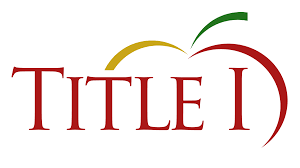- Newburyport Public Schools
- About Title I Programming
Title I

Overview
-
Services are provided for any student who qualifies as a result of our reading screenings.
Title I interventions are delivered in 6-8 week intervention cycles. Students may participate in all or one session, based on their needs during the year. Students enter and exit the program during the school year based on the results of the beginning, middle and end-of-year reading screenings.
Literacy Support (Grades K-5)
-
Students receive additional literacy instruction in small peer groups or one-to-one with a literacy support teacher. Literacy Support teachers work with students in the classroom, during the literacy block, and outside of the classroom in a literacy support setting.
Student writing and word analysis support varies during lessons depending on the students' use of reading and writing strategies, as well as the overall lesson goals. Literacy Support lessons are specifically designed to meet each student's individual needs.
The objective of a literacy support intervention is to increase students' reading and writing skills in order to read and comprehend higher level texts. Title I teachers also collaborate with the classroom teachers to supplement and reinforce students' literacy instruction and to monitor their literacy progress.

